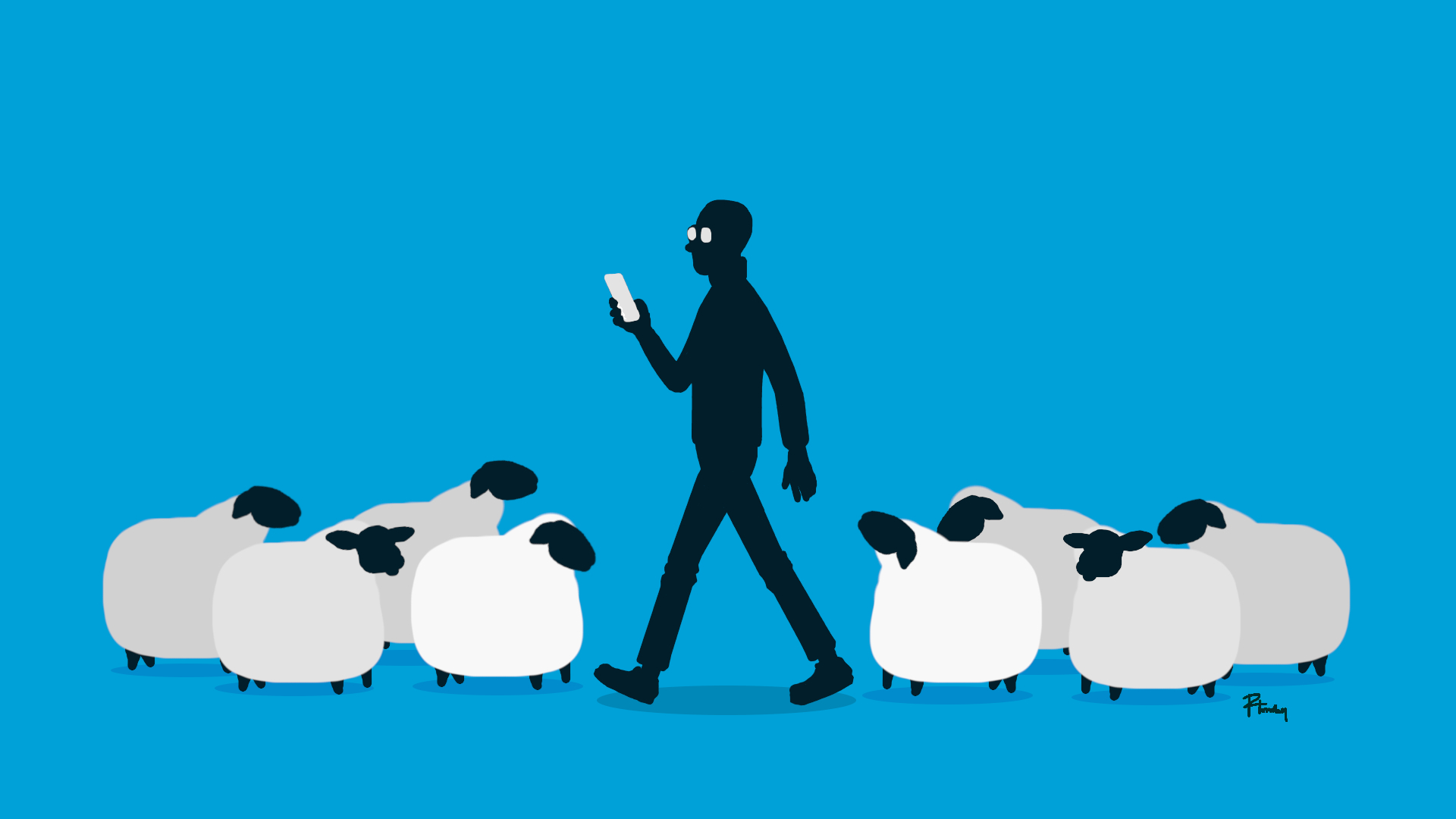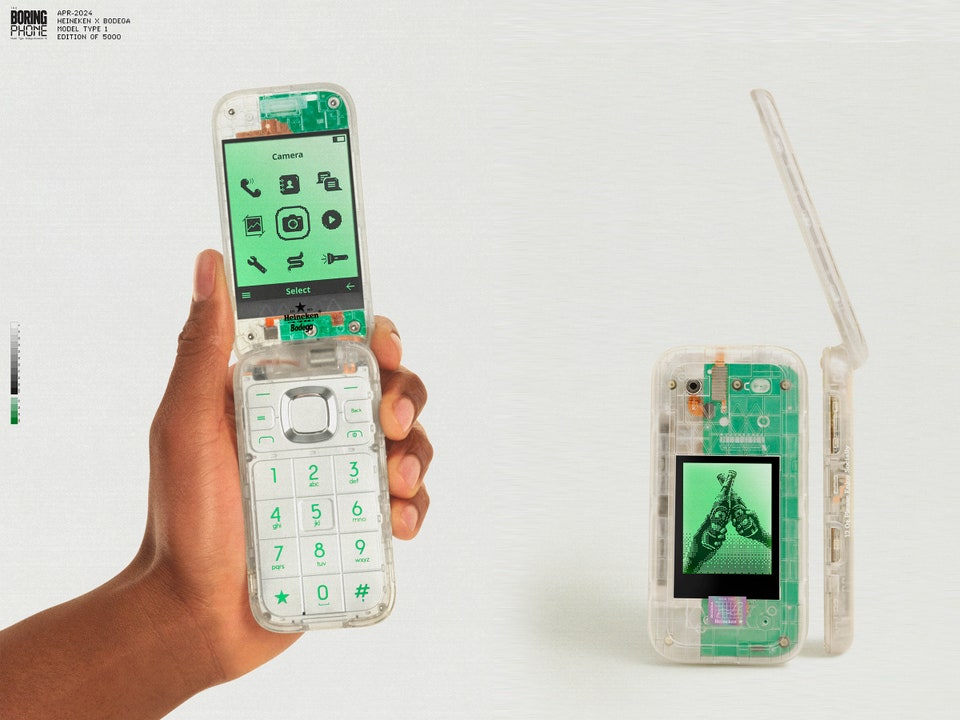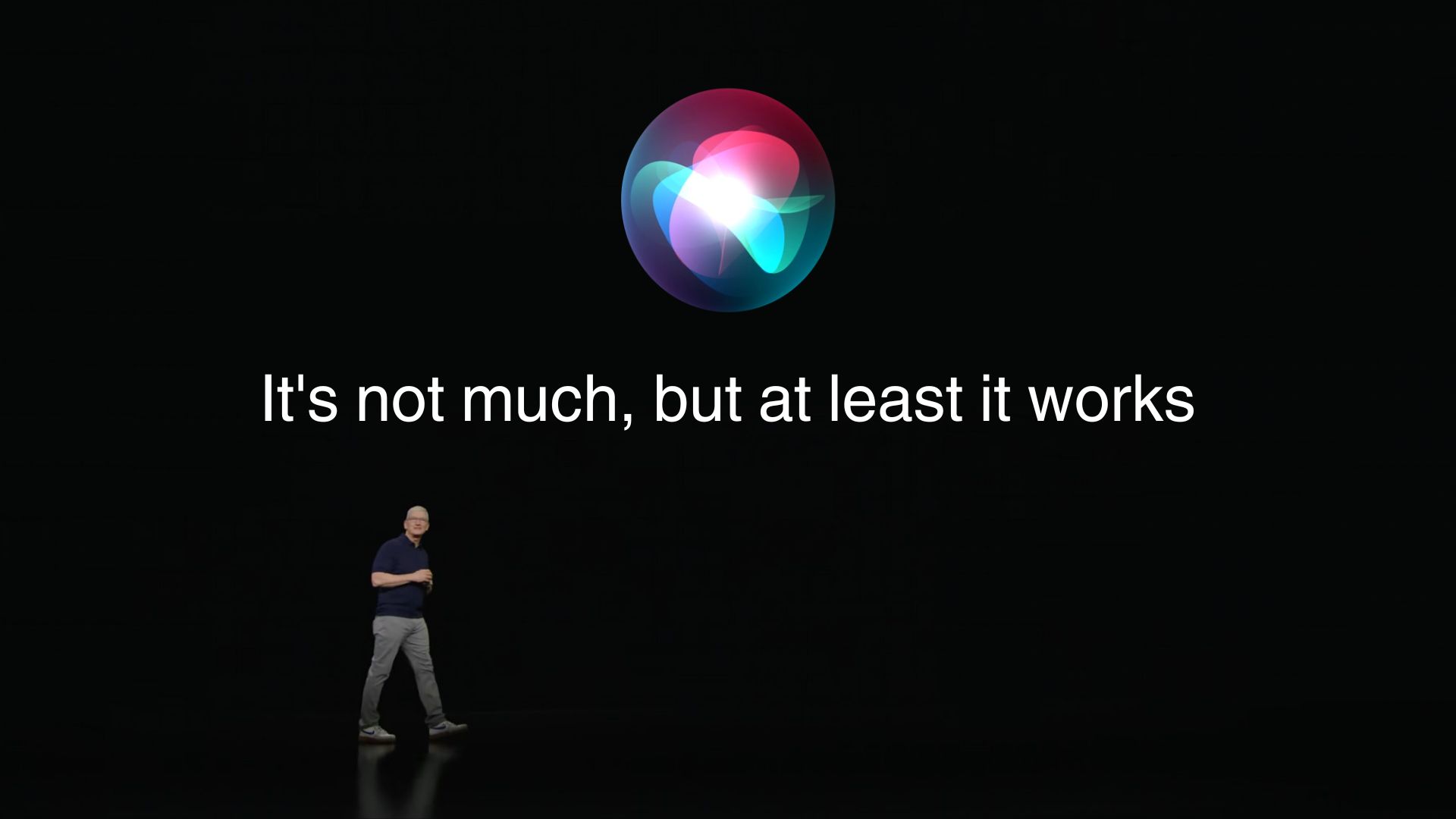Will Apple "Think Different" about AI? Ahead of WWDC keynotes and announcements, questions loom
WWDC 2024’s most anticipated news risks upturning the Apple cart

Despite historically setting the bar for what’s considered the “current cool thing,” when it comes to AI, Apple has been playing the role of “awkward kid at pool party” — staring at their phone, pretending to reply to texts, and waiting for the ground to open up and swallow them whole.
All while its contemporaries — Microsoft, Meta, and Google — dive head-first into shallow waters, giddily flirting with cutting-edge AI models, and buzzing with the excitement of a six-year-old boy who just stumbled across a stick that loosely resembles a gun.
I’ve previously wondered if Apple’s fashionably late approach to AI was a mistake — get in the pool, Apple, you coward — but the more time that passes, the more I’m convinced otherwise. AI has fallen from grace for me. This technology promised so much, yet now it’s just an all-consuming plagiarism machine cyber-skinwalking as your virtual girlfriend.
Will Apple AI be WWDC 2024’s most controversial talking point?
With WWDC 2024 rapidly approaching, observers are all betting on AI being Apple's major focus as it presents software capabilities to developers gathered in Cupertino and live streaming around the world. But I’ve been beginning to wonder if Apple should bother entering the AI arms race at all.
But wonder no more. Thanks to new information from aptly named outlet The Information, we can say for certain that Apple will be partnering with ChatGPT-creators OpenAI to bring some form of conversational artificial intelligence into the iPhone fold. And Apple still has other options on the table with a potential deal with Google for licensing its Gemini models among others.
However, just because AI is the hottest thing in tech doesn’t mean everyone is happy about it. In fact, if there’s any particular brand whose privacy-focused audience hasn’t been so receptive to the tentacles of AI, it’s Apple’s. So, while everyone else is busy cannonballing into the AI waters like it’s the last day of summer, I’m rooting for Apple to “Think Different” regarding AI.

It’s hip to be square
AI is the hip new thing, all the kids are doing it — whether you’re being spooked by the potential sentience of Snapchat’s My AI or getting the digital dollar store version of Scarlett Johansson to read romantic poetry to you via ChatGPT’s controversial “Sky” persona. All the kids except Apple, that is. Though Apple’s privacy policy has its critics, by the start of this decade, Apple had become the face of privacy, partially due to its own marketing. The prevailing narrative is that focus on privacy is partly why its devices cost so much — Apple doesn’t profit off your data like other companies do.
Stay in the know with Laptop Mag
Get our in-depth reviews, helpful tips, great deals, and the biggest news stories delivered to your inbox.
Just because everyone else is clamoring to make the smartphone that little bit smarter doesn’t mean Apple has to follow suit — and its privacy-focused history indicates Apple won’t go whole hog into AI as Google has done with its Gemini Apps. Besides, is anybody even asking for smarter smartphones at this point? If anything, a growing undercurrent of tech users believes it’s hip to be square, chasing digital minimalism and a love of the dumbphone.
Even if the iPhone was to stand still on generative AI, it’s in no real danger of being framed as anything close to “dumb.” After all, Apple has used AI for years already to enable features like Personal Voice in iOS 17, an accessibility option that uses on-device machine learning to clone a user’s voice.
The cultural divide on AI: Creators vs. Seekers
AI has created a cultural divide online. On one side of the argument are the artists and creative minds who have spent years honing their craft and developing their talents. On the other, there are seekers looking for results (and whose artistic capabilities potentially peak at the unintended rhythm of each keystroke as they type “Make me a picture of a dog on a surfboard lol” into Google Gemini.) The middle ground might be Adobe Photoshop, which is used by creators but debuted Generative AI tools a year ago this month.
The former group — creators — just so happens to be a large portion of Apple’s user base. Judging by the reactions to the iPad Pro M4’s recent “Crush!” ad, in which a series of musical instruments and art supplies are fed into the maw of an industrial compactor only for it to open and reveal an iPad Pro in their place, I’d say that opinions on generative AI, in particular, have been made pretty clear.
I may not agree with the outrage the ad spawned or the Apple apology that followed, but I’m also not blind to some of the points raised by those irked by the imagery on show. To many people, this was a visual metaphor for how technology is destroying human creativity—and given the glorification of text-to-medium models like Midjourney, Sora, and ChatGPT, can anybody really blame them?

Humans generate, AI automates
You can’t deny the popularity or allure of generative AI tools; they produce results instantly with a fraction of the effort. I used to think Bob Ross was a prolific painter, but give me one weekend with Microsoft Copilot, and I could easily double his sizable portfolio of kitschy landscapes. Depressingly, sixty thousand digital generations of trees and mountains later, I’d have yet to produce a single piece of art.
No offense to the artistic works of Suda the elephant, but art is a distinctly human creation, and Apple should be dead set on keeping it that way. Crush all the pianos you want for all I care. Still, the day Apple begins peddling AI image generators trained on stolen art or Shutterstock photos, it can kiss its $3 billion valuation goodbye. Not only would such a tool feel incredibly ill-fitting for the brand, but if an Apple user ever had the urge to gaze upon some surrealist art, then there’s always the Magic Mouse to contend with.
Another of this tech’s talents for dampening human creativity is AI-generated summaries — a “Don’t read, we’ll do it for you” approach to the written word that turns anything potentially mentally nutritious into lackluster, fast food slop at a moment's notice. And that’s assuming it manages to get things right. After being exposed to a little too much internet, Google’s new AI Overview feature developed TikTok brain and directed Search users to add glue to pizza and eat rocks.
If you're going to do it, do it right
Of course, believing that Apple won’t go all out with AI when its annual Worldwide Developers Conference kicks off on June 10 is a bit like thinking you have a successful career ahead of you in herding cats. It’s happening, like it or not.
Ultimately, we can't say for certain how Apple plans to make it happen until the show’s opening keynote makes it plainly clear. But we can hope for the best with the evidence we’ve collected so far.
Apple’s acquisitions of both Datakalab and Xnor.ai (and the fact that its Bionic A-series and M-series silicon chips house AI-enhancing NPUs) give us hope that privacy will be paramount when it comes to AI, with all the pieces in place to promote on-device performance that doesn’t overly rely on external cloud computing.
We’ve recently heard that Siri’s big LLM (Large Language Model) upgrade, giving it a more chatbot feel, will likely be released in 2025. When it does, Siri will have similar capabilities to newer Copilot+ PCs — including opening files, moving documents, and having wider control over app functions.
If this is containable on-device, then granting Siri AI agent privileges (similar to how the rabbit r1 was marketed) would be another fantastic step in the right direction with AI for Apple. Not only does it promote functional features over flashy ones, but it also offers a huge boost for iOS 18 in terms of accessibility.

Outlook
Some might look at what the competition is working on and see Apple's cutbacks on AI features as boring. To that, I say, good.
If Apple really wants to turn heads with its AI offering, a small sampling of useful features will go much further than simply adopting the same set of generative tools that everyone else is using for the sake of it. Keeping the AI footprint small will also go a long way to keeping its user base happy in the long run.
Apple’s AI experience needs to be contained within the device it ships on and made to be as unobtrusive as possible regarding the average interaction with said device. Siri doesn’t need to summarize your news stories or pull out a Picasso on command.
It’s the details that matter, and even smaller rumored features that improve representation through generative emojis can elevate the iPhone experience — without alienating the Apple faithful.
More from Laptop Mag

Rael Hornby, potentially influenced by far too many LucasArts titles at an early age, once thought he’d grow up to be a mighty pirate. However, after several interventions with close friends and family members, you’re now much more likely to see his name attached to the bylines of tech articles. While not maintaining a double life as an aspiring writer by day and indie game dev by night, you’ll find him sat in a corner somewhere muttering to himself about microtransactions or hunting down promising indie games on Twitter.
